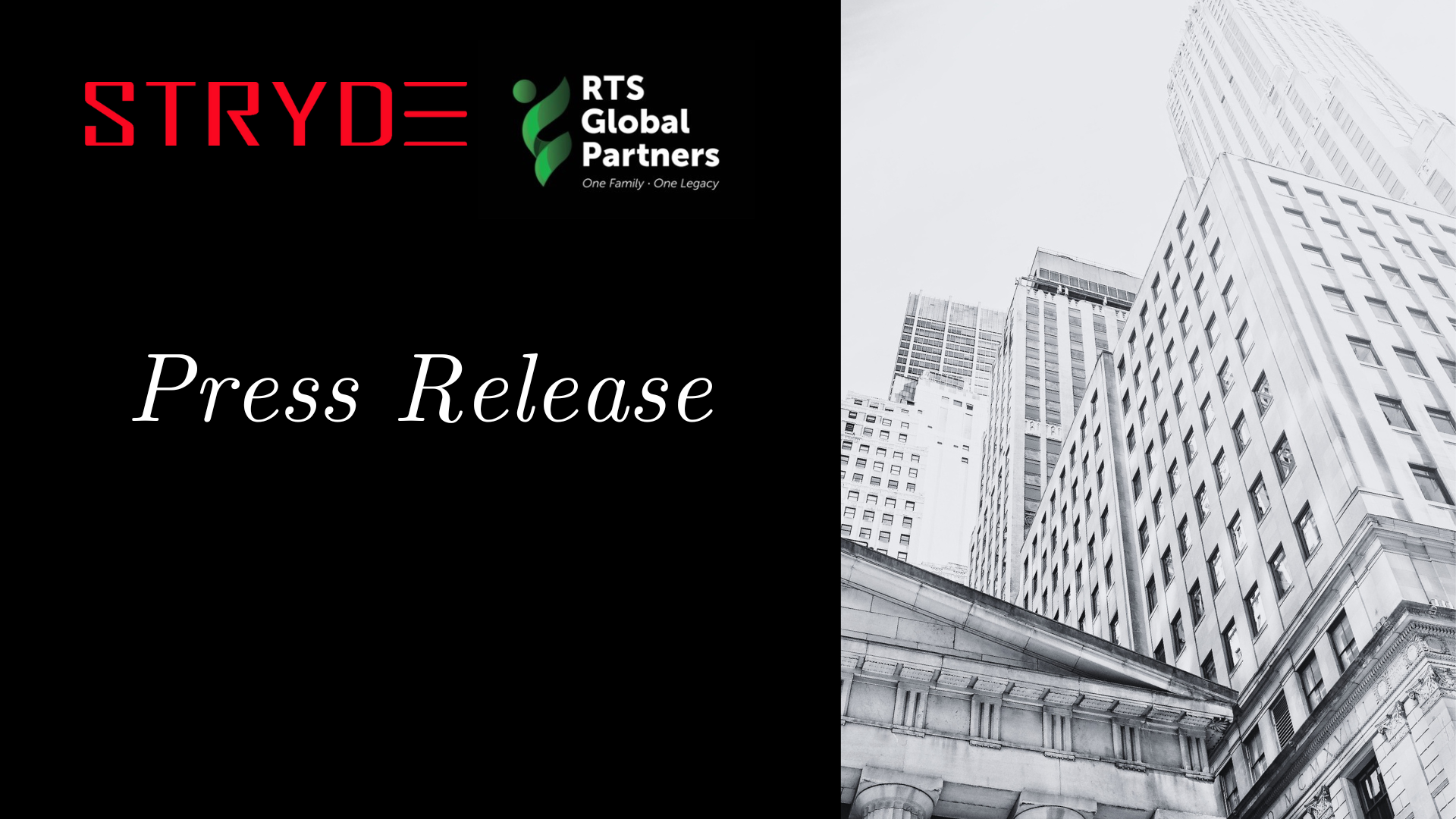 (1).png.jpg)
2024-12-11
Standfirst: This article explores the evolving investment landscape and how family offices are shifting their investment principles to become more attractive, sustainable, and competitive, not just in the race for investment opportunities but in the battle for talent with leading financial institutions. We dive into investment careers in family office and how creative compensation structures, adjusting risk appetites, and an openness to entrepreneurial investment professionals make now the most exciting time to join the industry.
Changing market conditions, geopolitical volatility and shifting generational priorities are just a few of the reasons why family offices are evolving their approach to investing. Family offices are also being forced to mitigate new risks with increased regulation, disclosure, and wealth taxes eroding wealth preservation. As a result, there is a broad trend of diversification to include more focus on alternatives and a greater focus on direct investments and co-investing, which provides family offices with more control over their investments and the ability to shape the strategy and direction of the businesses (and world around them) they invest in.
These factors have all influenced decision-making in the family office, leading many to professionalize and become more dynamic, robust, and competitive as a result. In turn, family offices are accessing otherwise difficult-to-reach funds, venture capital networks, investment opportunities, and talent.
For investment professionals, it has never been a more exciting time to join the industry.
The Ever-Evolving Family Office
Family office is no longer a term used exclusively to describe a small and intimate entity managing the interests and investments of wealthy families. It can now refer to an institutionalized family enterprise, often with a family constitution, investment policy, governance structure, and sophisticated investment and wealth management team to match.
According to a report by Ocorian, 85% of family offices have formalized their governance, management, and infrastructure over the last five years with 45% strengthening their management team and 41% developing a more diverse and professionally managed investment portfolio.[1]
As family offices employ a wider range of investment strategies, and the broader ecosystem becomes more complex, there is a greater demand for investment talent[2], alongside a record number of listings of family-operating businesses, has created more wealth and demanded more family office professionals to manage that wealth. As they evolve into powerful players in global financial markets and philanthropy, they use their valuable capital and patient resources to shape industries, create social impact, and influence policy. This influence and ambition mean they demand world-class people to lead their organizations competing with leading financial institutions such as investment banks, private equity, hedge funds and sovereign wealth funds.
Exploring Key Investment Talent
The CIO
The CIO is arguably the most important person within the family office team. While on the surface, CIOs of family offices appear to do the same job, this role varies depending on the family, size of AUM, risk tolerance, and investment philosophy they are guided by. It is crucial that each CIO can develop an investment strategy that aligns with the family's needs and capitalizes on its existing strengths. For example, if the wealth creator is involved in the family office and has expertise in a sector, such as healthcare or tech, then it can make sense to focus on direct investing within the same sector. Every family is different, and each CIO must operate with objectivity and integrity, remembering they are providing a service to a family.
The traits of a family office CIO can be quite different to that of a large endowment, private equity firm or hedge fund. A family office CIO must build and manage a diversified portfolio of investments aligned with the family’s goals. As such, it is imperative they understand the implications of investment decisions in relation to tax, philanthropy and estate planning. Furthermore, as we look to the next two decades, CIOs must be attuned to the anticipated Great Wealth Transfer [2] occurring over the next 25 years and understand the perspectives and values of Millennials as they begin to assume greater influence over the family’s wealth.
The Larger Investment Team
Family offices typically deploy investment teams of five or six, but these can reach double-digits for more established enterprises. These teams are often comprised of researchers, analysts, and portfolio managers, who must, above all else, be analytical thinkers and boast an ability to interpret information, looking beyond the obvious and uncovering valuable insights. These investment professionals must have advanced quantitative skills and bring a holistic perspective. Their main responsibility is to manage investments, but it is also crucial that they understand how every aspect of the team works together and how to present key findings/ideas to the family or investment committee. Like any family office hire, investment professionals also need to boast emotional intelligence, loyalty, attention to detail, and an ability to work well under pressure and in an incredibly bespoke environment.
Niche Investment Specialists
As more traditional areas like public equities and real estate continue to be fundamental elements of a family office's investment strategy, there is a growing trend toward diversification across various asset classes. As a result, investment teams are now incorporating specialists to address these diverse areas. For many family offices, this still involves more traditional investment roles such as a real estate portfolio manager or a public equities specialist, but it may also encompass experts in emerging classes, such as digital assets. The UBS Global Family Office Report 2024 indicates that 35% of family offices are now allocating funds to these areas, creating a need for expertise to look after these new investments.
As direct investment allocation increases, larger teams may be warranted to support and drive all elements of the deal process from origination through to execution and subsequent portfolio management. For those family offices with more resources or those with a significant allocation to alternative asset classes, a niche investment specialist focusing on private equity, hedge funds, credit, or impact could be a useful addition to the team. The sought after talent tends to be experts with prior investing experience from well-regarded private equity firms, corporate finance, and top-tier investment banks. Family offices now find themselves battling with these elite organizations for best-in-class talent, so what does it take for a family office to attract exceptional minds.
The further professionalization of family offices means there is no compromising on the drive to hire exceptional talent. The competition for top-tier talent at the executive level is further heightened by family offices' preference for professionals with sector-specific experience, which naturally narrows the candidate pool. From Stryde Search’s analysis of CIOs at large, professionalized family office CIOs held at least two degrees from top-tier colleges/universities and prior experience at top firms before starting with a family. At Stryde Search, we collaborate with our family office clients in crafting an employer value proposition ahead of a major investment hire to appeal to and attract the most prestigious talent available.
Expert-generalist Investment Roles
As it can become a significant cost to employ a large investment team, we see some of our family office clients utilizing an ‘expert-generalist’ approach. While some will hire a CIO/CEO who has a variety of both public and private sector experience to fill this role, others will promote this person from within after years of hands-on experience and expert knowledge of the inner workings of the organization. The expert generalist provides ample expertise and experience to navigate the contrasting market regulations, models, and criteria while also bringing contacts and access to worthwhile networks. Most importantly, these individuals should be dynamic and able to problem-solve, adapt, and apply their knowledge across a range of investments which is imperative in an era of uncertainty where portfolio diversification is key to decentralizing risk. They must also have great vendor management skills to engage the right outsourced service providers, as well as the ability to negotiate investment terms with external managers.
The Rise of the Entrepreneurial Investor
It's important to be cautious when making broad statements about family office trends, but we are noticing a movement towards embracing a more entrepreneurial spirit among certain first-generation families. Some of these leaders, who have built their wealth, are willing to back great investment ideas as a solution to working with the best talent. These “hires” often work alongside the CIO and may explore creative strategies like lower mid-market private equity models, innovative hedge funds, built on co-investment agreements.
In a bid to raise capital outside of traditional institutions, we are witnessing ‘entrepreneurs’ pitching themselves to family offices with an idea, a plan for execution, and a promise to spread the risk in a bid to share the return. For family offices comfortable with entrepreneurship and looking to maintain a competitive and sustainable family office, this is an appealing concept that marks an opportunistic and optimistic outlook for the future of family offices. Balancing risk and opportunity, family offices plan to maintain a long-term investment outlook but remain nimble by diversifying their portfolios and capitalizing on opportunistic deals.
A Focus on Culture Fit and Compensation
Family offices should establish clear parameters regarding their risk tolerance and growth objectives before initiating the search for an investment hire. It is equally crucial to articulate the desired culture and values of the organization. The interview process should serve as a form of due diligence for both parties, allowing them to assess compatibility based on their respective risk preferences and values, enabling self-selection in or out based on these factors.
An investment-driven family office which incentivizes greater risk-taking will differ considerably from a family office or philanthropic fund focused on wealth preservation. Not only does this dictate the culture of a family office, something a professional must consciously opt into, but it demands two entirely different types of professional, both in terms of experience and mindset. The first example might require an experienced investment leader who is accustomed to navigating challenging markets and working in a high-pressure environment against high expectations while the other must be content with a slower, more in-depth, cautious approach.
This is a vital consideration for professionals to make before joining a family office. These are incredibly unique structures which are intrinsically tied to the families behind them. A new hire must be able to blend seamlessly into the existing culture, complementing its personalities and pace and understanding that boundaries and benchmarks can differ from other industries. Beyond competency, family office professionals must be immensely loyal and in return, they can receive an unparalleled work opportunity that sees them managing at times extraordinary amounts of capital and connecting closely with prominent Principals/families.
Family offices can also be incredibly innovative in how they compensate their staff. From our own data, we know that family offices utilize a range of short and long-term incentive plans and CIOs of large family offices in the US can earn total packages that surpass $1.5m. Family offices have more creative license to craft bespoke incentive plans which can include carried interest, transaction bonuses, phantom stock options, or loans, enabling CIOs to invest alongside their principals and generate their own portfolio of wealth along the way. According to Morgan Stanley, 59% of family offices report the implementation of one or more of these vehicles.
The prevalence of these plans increases with assets under management, with 73% of family offices with $2.5BN or more in AUM reporting its use in attracting in-house investment talent.[3] Not only can this attract the highest grade of investment talent, but when structured correctly, it ensures longevity and the alignment of long-term objectives with the family office. Working with an executive search firm and/or compensation specialist can help with benchmarking and appropriate design of a LTIP to prevent problems further down the line should an executive employee leave the organization or part ways.
The Outsourced Chief Investment Officer (OCIO)
Hiring a team of investment professionals can become costly and is not the right approach for all family offices. Another option is the OCIO model which is rising in popularity in smaller family enterprises. A recent UBS report revealed that the overall cost of running a family office in 2023 was 39.8 basis points of AUM, up from 28.1 in 2022.[4] Costs are rising across every industry and human capital is by far the largest expense. For family offices in more nascent stages, an OCIO model under the scrutiny of an expert generalist leader in-house can be an interesting and economical choice. It offers a pool of external investment professionals who can in turn unlock investment opportunities, perform due diligence, and offer digestible information on the performance of these investments without the upfront cost of an in-house CIO.
That said, family offices must consider the inherent conflict of interest that comes with external professionals as they may not understand the long-term objectives or values of the family in the same way as in-house talent. They are also not able to get granular enough with the family given their external and part-time position and are less likely to make investments in the most tax-efficient way given their siloed role concentrated on investing and not considering the associated impact on the family wealth.
For established family offices that crave greater control over where and how their capital is allocated, with a desire to unlock access to otherwise inaccessibile opportunities and ensure they align completely with their long-term objectives, an in-house CIO is key. The benefits can be multiple.
Conclusion
As family offices continue to grow in number and adapt to external influences, their investment strategies and talent requirements will also evolve. As mentioned in this article, there is a growing trend towards portfolio diversification and professionalization among family offices making them interesting places to build a career. Their long-term capital is an attractive proposition for talent, as they are well-positioned to compete with private equity and venture capital firms. This patient capital allows them to support businesses through growth and success over many years or even generations, if they choose to do so. This is mirrored in their approach to talent – hire and retain for the long-term, providing an opportunity to grow and prosper.
Interested in learning more? Stay tuned for our next article, which will focus on "How to Find a Role in Family Office."
For a conversation about hiring for your family office, or finding your next role in a family office, please get in touch with a member of the Stryde Search team.
Partner: Katherine Travell, kt@strydesearch.com
or
Senior Consultant: Lisa Slagel, ls@strydesearch.com
[1] Ocorian: https://www.ocorian.com/news-press-releases/family-offices-becoming-more-professional-face-more-complex-challenges
[2] Cerulli: https://www.cerulli.com/press-releases/cerulli-anticipates-84-trillion-in-wealth-transfers-through-2045
[3] Morgan Stanley: https://www.morganstanley.com/articles/single-family-office-compensation
[4] UBS: https://www.ubs.com/content/dam/assets/wm/global/uhnw/doc/ubs-gfo-report-2024-single-pages.pdf

.jpg.jpg)

.png.jpg)
.png.jpg)
.png.jpg)
.png.jpg)
 (2).png.jpg)
.png.jpg)
 (1).png.jpg)
.png.jpg)

 (4).png.jpg)
 (3).png.jpg)

 (1920 x 1080 px).png.jpg)